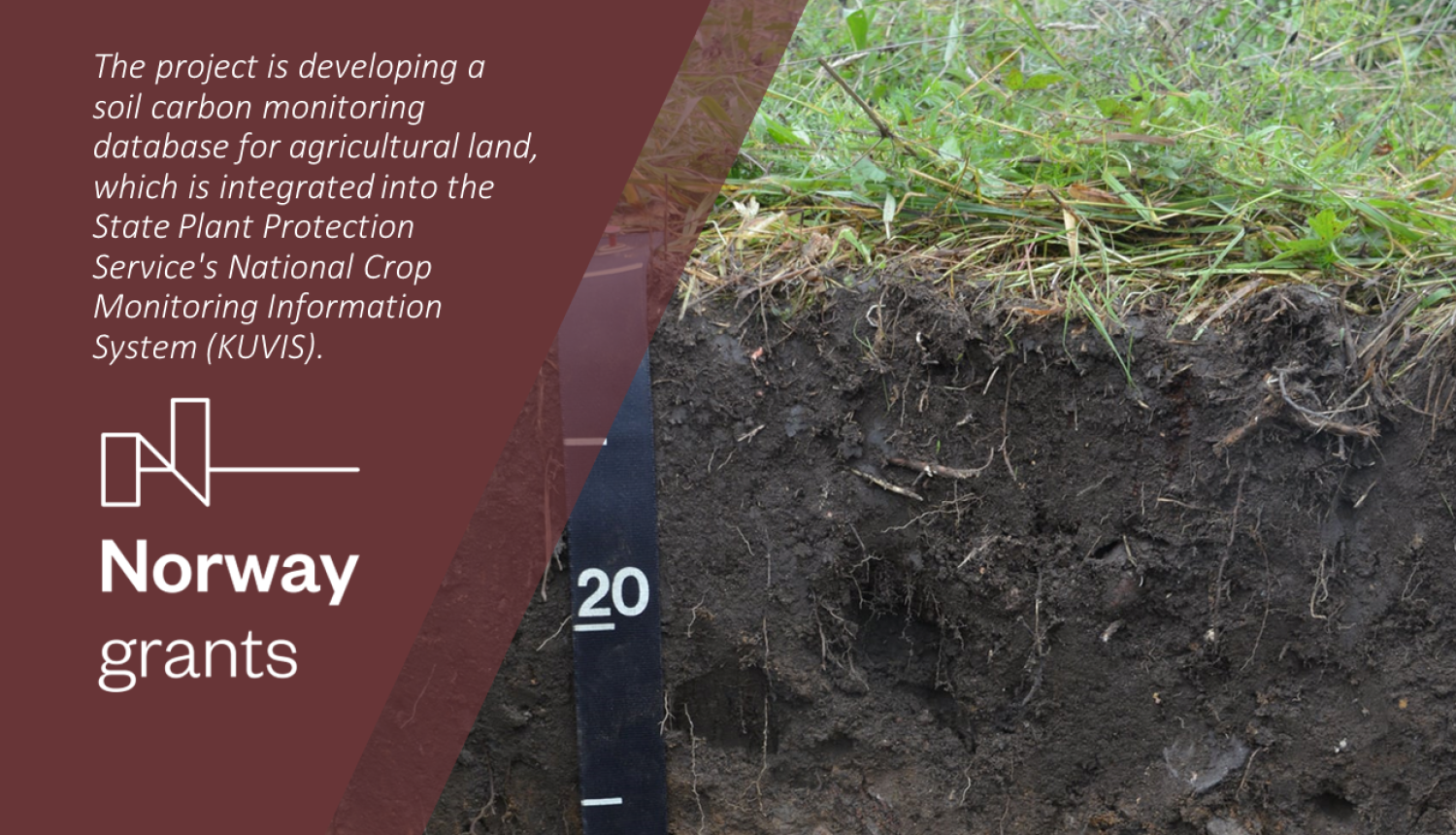The project "Enhancement of sustainable soil resource management in agriculture" (E2SOILAGRI) is progressing according to plan, but data need to be integrated into a single system, with a mandated organisation responsible for maintaining it, suggest scientists at the Norwegian Institute of Bioeconomy Research (NIBIO) in the mid-term report on the first two years of the project.
At the end of October, representatives of NIBIO visited Latvia on a Norwegian state mission to assess the implementation of the Latvian agricultural soil research project and to take part in field work demonstrations. The project has a very broad scope and covers different areas of agricultural soil research. The project is progressing as planned, but there are a number of recommendations for further use of the project results in a beneficial and convinient way.
The Norwegian experts recommend that, in the longer term, the historical database of Latvian agricultural soil information and the digital information held by the University of Latvia should be integrated into the Latvian national soil information system. This is not the task of the E2SOILAGRI project, but the project should prepare for this integration by developing appropriate data documentation and format.
Changes to the soil classification system are costly, require retraining of staff and can cause problems with data continuity. The necessary changes and corrections that Latvia is currently making need to be made very carefully and frequent adjustments should be avoided. The choice of a new national agricultural soil classification system and its compatibility with the World Soil Classification System should be designed with at least a ten-year perspective, NIBIO recommends. Based on the Norwegian experience with the mapping and description system, the Norwegian scientists stress that it is very important that the instructions and methodology are recognised at national level and that the system should be maintained by a mandated organisation.
In order for E2SOILAGRI participants to further develop their skills in soil description and mapping according to Latvian and global soil classifications, practice and repeated training is needed. At the beginning of July this year, a two-week training in soil description and mapping was already held in "Lodesmuiža", Taurene municipality, Cēsis region, which was attended by ten experts from different Latvian organisations. But it is important to continue training with practical mapping tasks, and the University of Latvia should continue to offer such courses on a regular basis while developing their content, NIBIO recommends.
Legislation must provide a solid basis for a common goal. The E2SOILAGRI project aims to develop proposals for improving the legislation on the Latvian agricultural soil information system, but the design, content and details of the information system itself should be left to a mandated organisation.
The E2SOILAGRI project is currently developing a soil carbon monitoring database for agricultural land, which is integrated into the National Crop Monitoring Information System (KUVIS). NIBIO also recommends that data from other parts of the project should be pooled to be managed together in the KUVIS database.
During the implementation of the project, it is important for both project participants and various stakeholders to contribute to the development and revision of the national soil classification system by testing and commenting on the draft soil classification system, the Norwegian experts recommend.
The full NIBIO report on the progress of the E2SOILAGRI project so far is available in English HERE.
This was the second NIBIO mission out of three planned visits of this nature during the project. The recommendations of the visit will be used to improve the results of the project. The project will also be concluded with an evaluation report, including recommendations for further improvement of Latvian agricultural soil information system.
artners of the Ministry of Agriculture in implementation of the Norway Grants Climate and Environment Program 2014 – 2021 “Climate change mitigation, adaptation to them and the environment” in the pre‑defined project “Enhancement of sustainable soil resource management in agriculture" are Norwegian Institute of Bioeconomy Research, the Latvian Forest Science Institute SILAVA, the State Plant Protection Service and University of Latvia.
Working together for a green Europe!




